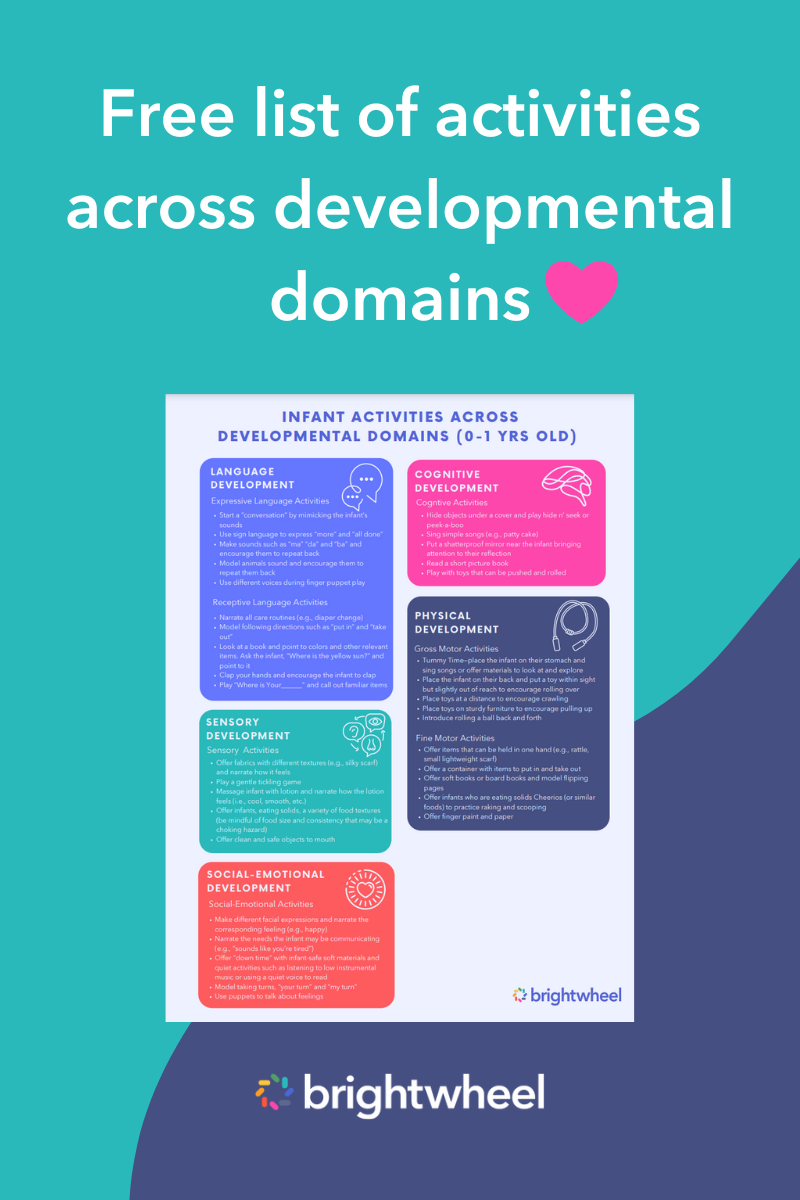As the parent of a preschooler, expect to be constantly amazed at how your child is changing daily from their experiences at school. Every day they’ll come home with new skills, new stories, new ideas and you’ll barely be able to keep track. Buckle up: These are exciting times filled with leaps and bounds of development!
Physical development
Your preschooler will be working on improving both gross and fine motor skills every day in the classroom. Walking, galloping, hopping, jumping, skipping, catching, throwing—they will engage in many or all of these activities each day. They will develop a greater sense of balance through playground activities, such as walking on a balance beam or scaling the jungle gym.
Finger and hand strength will be challenged as they learn to use scissors and refine their pencil grip, and hand-eye coordination will improve from doing puzzles, building with blocks, and using tools. Dozens of daily tasks help to refine these motor skills too—taking off a jacket, hanging it in a cubby, opening a lunchbox, putting toys away, replacing books on a shelf, and pushing a chair in.
Verbal development
As the parent of a two or three year old you already know how quickly language develops.
Once in preschool, you can continue to expect a rapidly increasing vocabulary, including a growing amount of connecting words and phrases, such as because, also, and then, etc. You’ll also notice grammatical development, such as correct usage of verb tenses and plurals, and increasingly sophisticated sentence structure.
Conversational skills are improving too. Your child is learning to follow the ebb and flow of a conversation and is (hopefully) interrupting less. They can follow multi-step directions, and are fine-tuning word pronunciations. They might even begin to tell jokes—jokes that are actually funny, that is.
Social and emotional development
Growth in social and emotional skills is at the heart of the preschool experience. This is a time for learning how to navigate the tricky waters of understanding personal feelings and the feelings of others. Children are figuring out how to handle conflict and disappointment, and developing a deeper sense of empathy while becoming part of a classroom community. They will develop an increased sense of self and an understanding of their own abilities, and will start to compare themselves more to others.
Your child will start to engage in imaginative and cooperative play with groups of children, and will make progress in making and maintaining friendships. They’ll develop sympathy and will start to figure out how to help out a friend who is sad or mad. This might also be your child’s first experience with trusting another adult, or looking up to a role model.
Overall, this first year of preschool will be filled with more developmental changes than you ever imagined or can even keep track of. This is a special time for you all: Your preschooler’s sense of independence will grow exponentially, as will your amazement at how quickly your baby is growing up.



